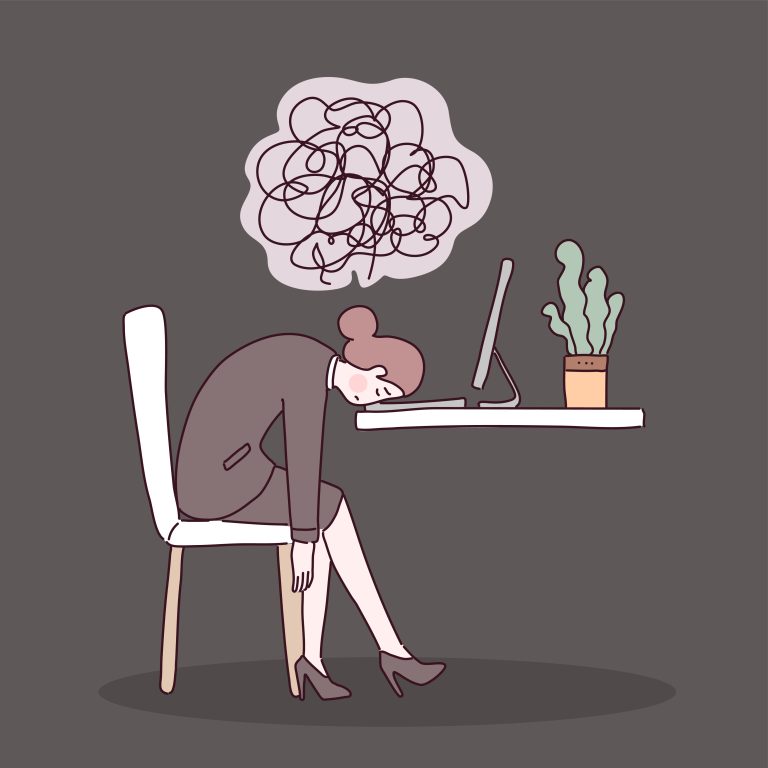What Is Depression?

Depression is like a brain fade, that gives you a feeling like everything you do is not valued. It has many variations for many people affected. Even every person can get depression but they do not know whether they have it or not. There are many stages of depression. We will explain it in the latter part of this article. Depression can be very dangerous sometimes because it can be mood swings to split in a second for people. So, you have to be more cautious dealing with a depressed person. When you or someone you know got depression do not worry about it, fortunately, it can be treated. Depression causes feelings of sadness, loss of happiness not doing your daily activity, loss interest of in your daily routine and there are many more. We will explain it in the latter part of the article.
Types of Depression
- Major Depression
- Persistent Depressive Disorder
- Bipolar Disorder
- Seasonal Affective Disorder (SAD)
- Psychotic Depression
- Peripartum (Postpartum) Depression
- Premenstrual Dysphoric Disorder (PMDD)
- 'Situational' Depression
- Atypical Depression
- Treatment-Resistant
Major Depression
This type of depression gets when you feel down for about two weeks. This is the start of the depression. So, you have to be careful of this and consult a doctor. You have to work alone through it and tell someone about your situation without getting out of your hand. Some other symptoms you have are,
- Loss of interest
- Weight gain or weight loss
- Trouble with sleep or not getting enough sleep
- Mentally and physically down
- Feeling not worthy or feeling guilty
- Cannot concentrate & make any decisions
- Thinking about suicidal
Major depression is different from person to person. It could be:
Anxious Distress
You feel like you will lose control of yourself.
Melancholy
You feel suddenly sad and lose interest in day-to-day activities. When good things happen still you feel sad. You might also:
- Feeling down in the mornings
- Lose weight
- Sleep Poorly
- Thoughts of suicidal
If you have melancholy depression the symptoms might get worse in the mornings. So, try to eat regularly all the time even if you are not hungry.
Agitated
Feels uneasy all the time. You may also:
- Talks lot
- Moves for no reason
- Acts impulsively
Talk therapy will help with this kind of depression. When this therapy medication does not work you have other options as well.
- Electroconvulsive therapy (ECT)
- Transcranial magnetic stimulation (TMS)
- Vagus Nerve Stimulation (VNS)
Persistent Depressive Disorder
If you have had depression for two years or more it is called a persistent depressive disorder. Symptoms are as follows: –
- Oversleep or not enough sleep
- Overeating or not eating much
- Low self-esteem
- Trouble concentrating
- Feeling hopeless
- Lack of energy.
You may be treated by physiology, medication, or both of these combined.
Bipolar Disorder
This is called manic depression. Medication can control this kind of depression. FDA has approved three medicines to treat this kind of depression phase
- Seroquel
- Latuda
- Olanzapine-fluoxetine combination
Psychotherapy will help you to get through this.
Seasonal Affective Disorder (SAD)
This happens most often during the winter months. For fixing this Antidepressants can help. You have to sit in front of a special bright light box for about fifteen to thirty minutes every day.
Psychotic Depression
Anyone with psychotic depression has the symptoms of major depression along with “psychotic” symptoms, such as:
- Hallucinations
- Delusions
- Paranoia
Combined antidepressant and antipsychotic drugs can treat this kind of depression.
Peripartum (Postpartum) Depression
This kind of depression gets to women who have childbirth.
Premenstrual Dysphoric Disorder (PMDD)
Women with this kind of depression when they have started their period.
Besides feeling depressed, you may also have:
- Mood swings
- Irritability
- Anxiety
- Trouble concentrating
- Fatigue
- Change in appetite or sleep habits
- Feelings of being overwhelmed
'Situational' Depression
When you have a stressful event in your life such as losing a loved one, lost job, or divorce this kind of depression gets on.
Psychotherapy can help you get through this.
Atypical Depression
Specified describes a pattern of depressive symptoms. If you have this kind of depression, a positive event can temporarily improve your mood.
Different symptoms of atypical depression include:
- Increasing appetite
- Sleeps more than usual
- Feels heavy in your arms and legs
- Overly sensitive to criticism
Antidepressants can help.
Treatment-Resistant Depression
People who are treated for depression and try several treatment methods without getting successful results are the ones who have Treatment-Resistant depression.